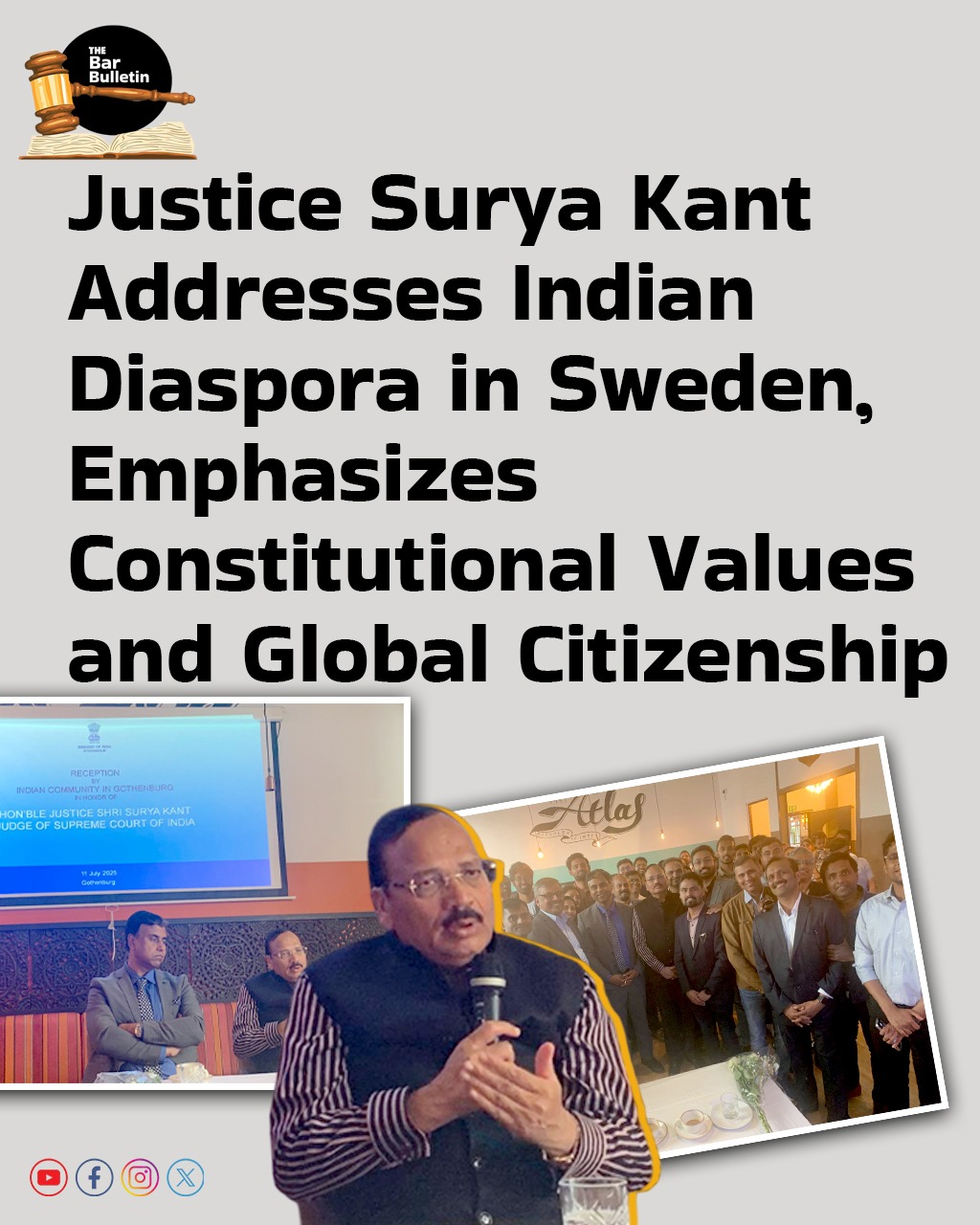On 11 July 2025, Hon’ble Mr. Justice Surya Kant, Judge of the Supreme Court of India, addressed a distinguished gathering of the Indian diaspora in Gothenburg, Sweden. The event, organised by the local Indian community, served as a celebration of shared heritage and values, and a reflection on India’s evolving global presence.
Justice Surya Kant opened his address by expressing gratitude to the organisers and acknowledging the deep cultural and emotional connection that binds overseas Indians with their homeland. He spoke of his experiences with Indian communities abroad, noting how the diaspora carries with it not just professional excellence, but the “fragrance of Indian culture” and the enduring values of empathy, resilience, and collective identity.
Reflecting on the global footprint of the Indian diaspora, now over 30 million strong, Justice Surya Kant highlighted the transformative journey of Indians across the world from necessity and migration to leadership and innovation in diverse fields. From Silicon Valley to Stockholm, he said, the diaspora has not just contributed but led with distinction.
Justice Kant commended the Indian community in Sweden for successfully integrating into Swedish society while preserving their Indian identity. He lauded Sweden’s commitment to transparency, equality, and democratic governance values which, he noted, strongly align with those enshrined in the Indian Constitution.
Underscoring the moral dimensions of justice, Justice Surya Kant quoted Swami Vivekananda and emphasised that a Constitution is not just a set of rules, but a moral compass. He called upon Indians across the world to act as custodians of the constitutional vision, upholding liberty, equality, and fraternity both at home and abroad.
He further highlighted the evolving role of the Indian judiciary in making justice more accessible to non-resident Indians (NRIs), particularly in areas such as property rights, matrimonial disputes, and guardianship matters. Courts in India, he said, have extended the protective embrace of constitutional rights to Indians abroad, affirming that India’s commitment to justice transcends territorial boundaries.
Justice Surya Kant encouraged the diaspora to continue preserving and transmitting Indian culture through festivals, language, and education. “Being Indian is not about geography—it is about shared values, collective memory, and enduring aspiration,” he observed.
Quoting American activist George William Curtis, Justice Surya Kant concluded by urging the community to remain loyal to the principle of justice and human dignity, and to serve as ambassadors of India’s constitutional and cultural legacy across the globe.



